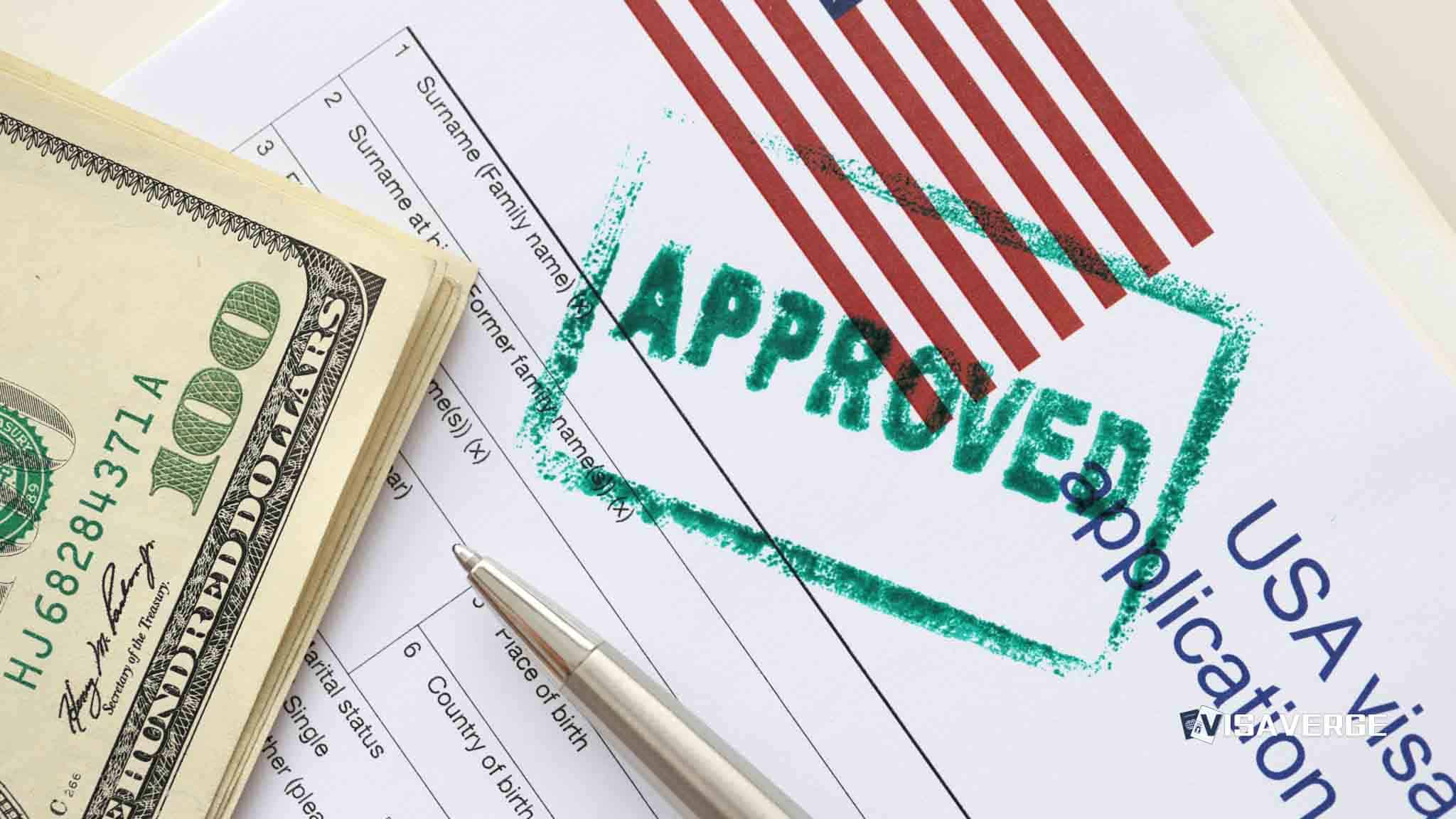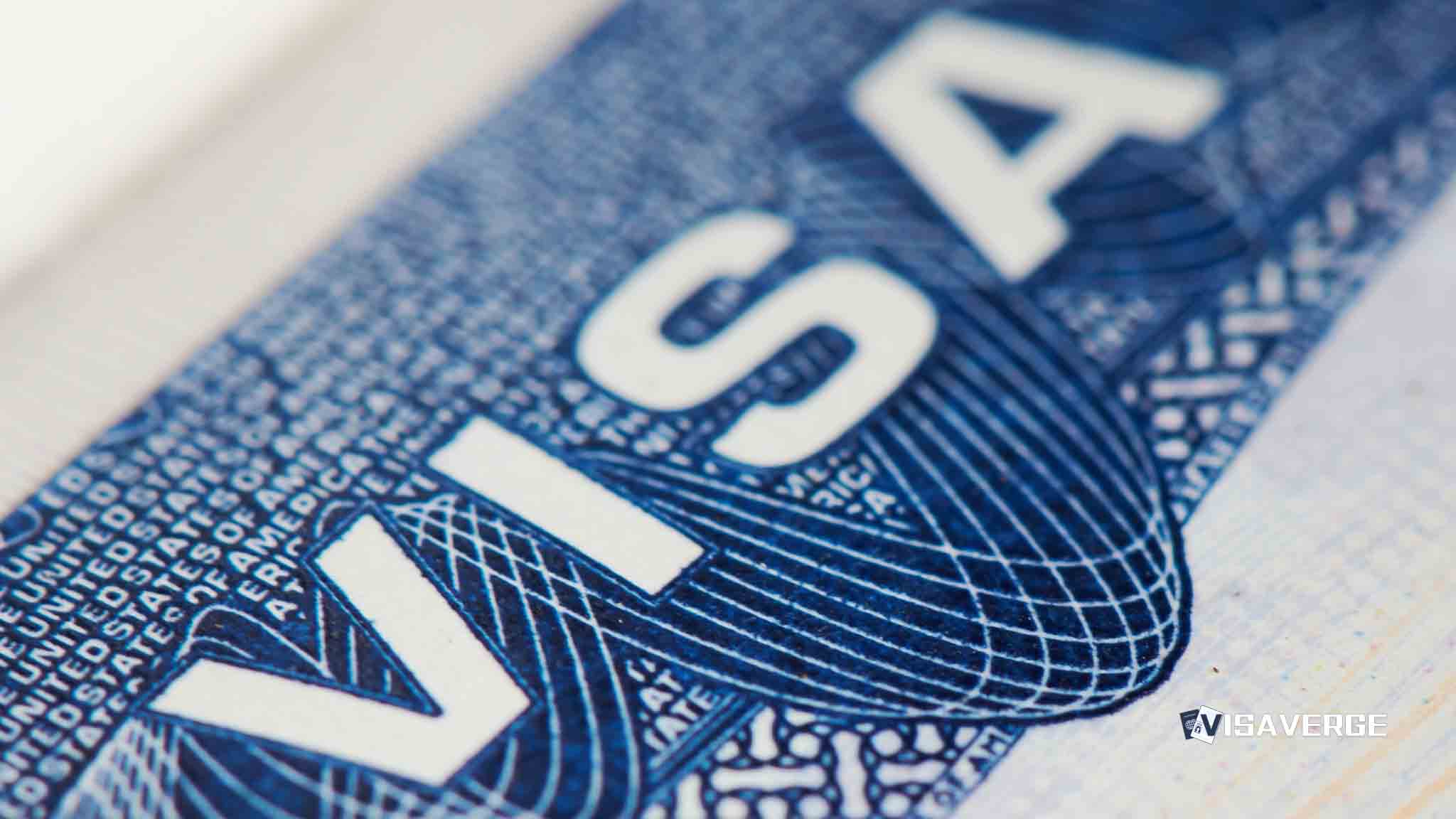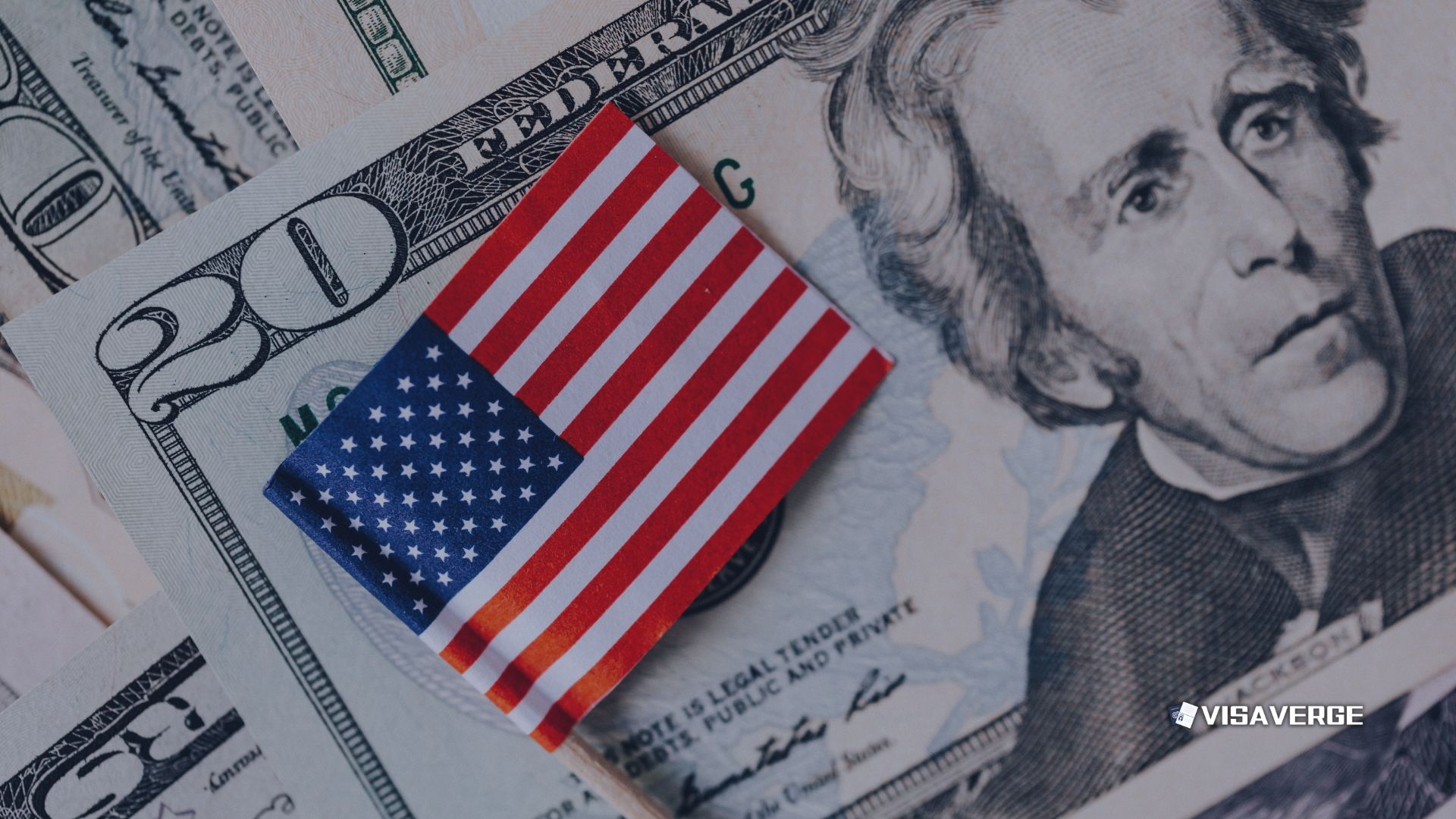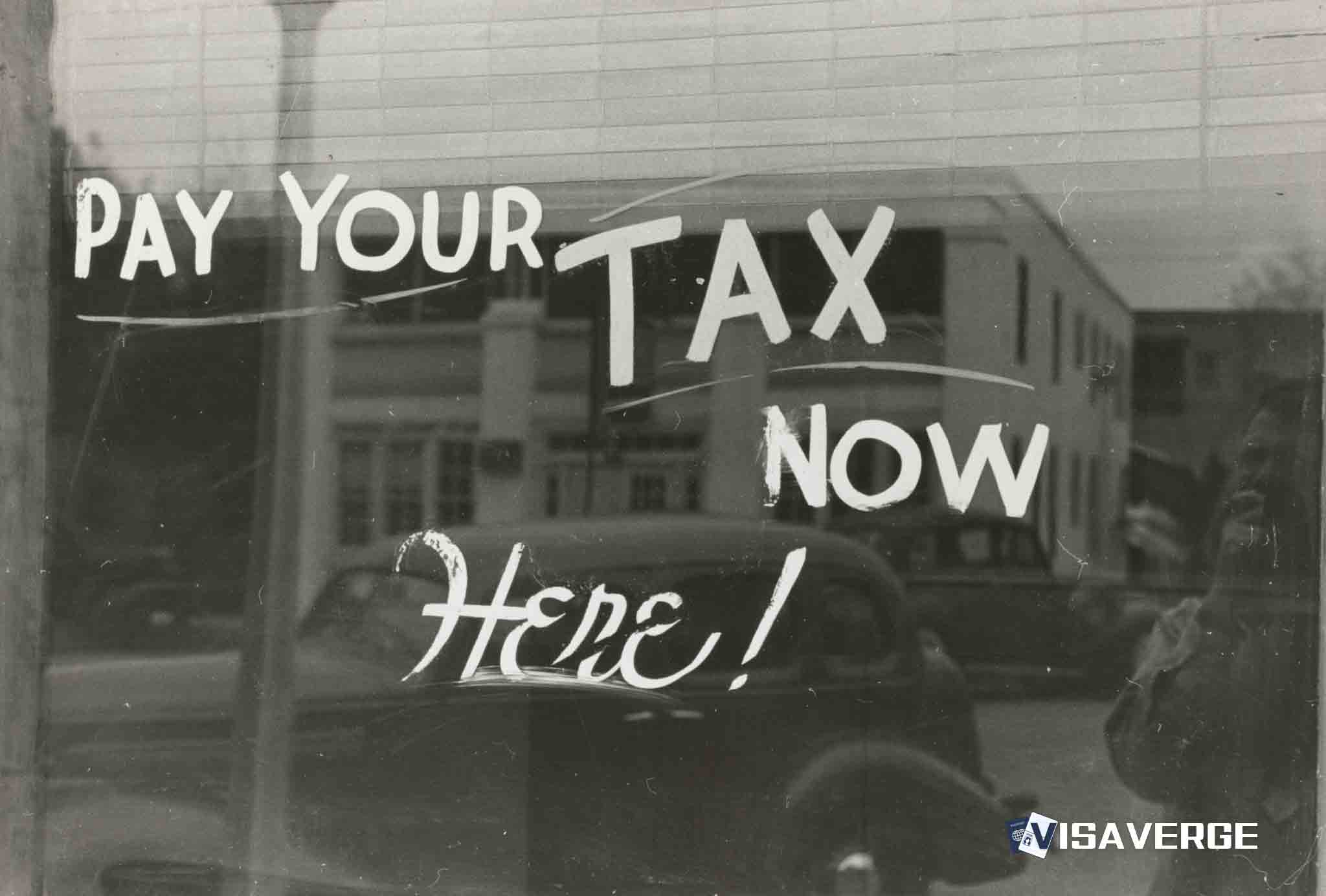Key Takeaways
• On June 4, 2025, a judge ordered DHS to provide visa fraud case documents to Cognizant.
• Cognizant faces accusations of H-1B visa fraud and discriminatory hiring, with a recent guilty jury verdict.
• USCIS policy changes reduced H-1B registrations by 11%, increasing scrutiny on visa applicants.
On June 4, 2025, a New Jersey federal judge ordered the U.S. Department of Homeland Security (DHS) to provide certain documents to Cognizant, a major IT services company, as part of an ongoing visa fraud case. This decision marks a significant moment in a legal battle that has drawn attention from companies, foreign workers, and government officials across the United States 🇺🇸. The case centers on allegations that Cognizant engaged in visa fraud and discriminatory hiring practices, particularly related to the H-1B visa program. The outcome could have wide-reaching effects on how companies manage their visa programs and how foreign workers pursue job opportunities in the United States 🇺🇸.
What Happened: The Latest Developments

Cognizant, a global IT services provider, has been under scrutiny for alleged visa fraud and discriminatory hiring practices. The company has faced accusations of misusing the H-1B visa program, which allows U.S. employers to temporarily employ foreign workers in specialty occupations. In a recent development, a federal judge in New Jersey ordered DHS to hand over some documents to Cognizant. These documents are expected to play a key role in the company’s legal defense.
This order comes after a series of legal actions involving Cognizant. Notably, a U.S. jury recently found Cognizant guilty of discriminatory conduct against non-Indian workers in an H-1B visa case. The company’s legal challenges have brought renewed attention to the H-1B program and the government’s efforts to combat visa fraud.
Why This Matters: The Stakes for Companies and Workers
The legal proceedings against Cognizant highlight the growing focus on visa fraud enforcement in the United States 🇺🇸. For companies that rely on foreign talent, the case serves as a warning about the risks of non-compliance with immigration laws. For foreign workers, especially those seeking H-1B visas, the case signals increased scrutiny and potentially fewer opportunities.
Key points:
– Cognizant is accused of visa fraud and discriminatory hiring practices.
– DHS has been ordered to provide documents to Cognizant as part of the legal case.
– The outcome could affect how companies use the H-1B visa program and how foreign workers are hired.
Background: Cognizant and the H-1B Visa Program
Cognizant has long been one of the largest users of the H-1B visa program. The H-1B visa allows U.S. employers to hire foreign workers for jobs that require specialized knowledge, such as IT, engineering, and science. Over the years, the program has faced criticism for alleged abuse, including claims that some companies use it to favor workers from certain countries or to undercut wages for U.S. workers.
Allegations against Cognizant include:
– Discriminatory hiring practices: Favoring Indian workers over non-Indian workers.
– Misuse of H-1B visas: Filing visa applications for jobs that do not meet the program’s requirements or for workers who are not truly needed.
A recent jury verdict found Cognizant guilty of discriminatory conduct against non-Indian workers in an H-1B visa case. This verdict has increased pressure on the company and brought more attention to how the H-1B program is managed.
Recent Policy Changes: How the Government Is Responding
In response to concerns about visa fraud, the U.S. Citizenship and Immigration Services (USCIS) has introduced several new policies aimed at improving the integrity of the H-1B program. These changes are designed to make it harder for companies to misuse the system and to reduce the risk of fraud.
Key policy changes include:
– Beneficiary-centric selection process: The H-1B lottery now focuses on individual workers (beneficiaries) rather than just employers, making it harder for companies to submit multiple applications for the same person.
– Increased registration fees: The fee for registering an H-1B application rose from $10 to $215 in March 2025.
– Stricter registration requirements: Employers must provide more detailed information when registering workers for the H-1B lottery.
– Enhanced fraud enforcement: USCIS and DHS have increased efforts to detect and prevent visa fraud.
According to analysis by VisaVerge.com, these changes have already had a noticeable impact. For the fiscal year 2026, USCIS selected 120,141 H-1B registrations, an 11% decrease from the previous year. Officials attribute this decline to the new policies and stronger fraud enforcement.
The H-1B Visa Application Process: Step by Step
Understanding the H-1B process is important for both employers and foreign workers. Here’s how it works under the current rules:
- Registration: Employers must register each worker (beneficiary) they want to sponsor through the USCIS online system. This step is required before submitting a full H-1B petition.
- Selection: USCIS uses a lottery system to select registrations. The new beneficiary-centric process means each worker can only be registered once, even if multiple employers want to sponsor them.
- Petition Filing: If a worker’s registration is selected, the employer must file a complete H-1B petition. This includes providing proof that the job meets the program’s requirements and that the worker is qualified.
- Approval: USCIS reviews the petition and decides whether to approve or deny it. If approved, the worker can begin employment in the United States 🇺🇸.
For more details on the H-1B process and to access official forms, visit the USCIS H-1B Specialty Occupations page.
Implications for Stakeholders
For Cognizant and Other Companies
The legal case against Cognizant is a clear signal that the government is taking visa fraud seriously. Companies that rely on foreign workers must be careful to follow all rules and avoid any practices that could be seen as discriminatory or fraudulent.
Potential impacts include:
– Legal and financial consequences: If found guilty, companies could face fines, restrictions on hiring foreign workers, or other penalties.
– Operational changes: Companies may need to review and update their hiring practices, train staff on compliance, and keep better records to avoid future problems.
– Reputation risks: Allegations of visa fraud or discrimination can damage a company’s reputation with clients, employees, and the public.
For H-1B Visa Applicants
Foreign workers hoping to secure H-1B visas face a more challenging environment. The government’s focus on fraud means applications are reviewed more closely, and there are fewer spots available due to the lower number of selected registrations.
Key challenges:
– Increased scrutiny: Applicants must provide clear, accurate information and meet all requirements.
– Reduced opportunities: With fewer registrations selected, competition for H-1B visas is tougher.
– Uncertainty: Ongoing legal and policy changes can make it hard to plan for the future.
For the U.S. Workforce and Economy
The H-1B program is designed to help U.S. companies fill jobs that require specialized skills. However, concerns about abuse and fraud have led to calls for reform. Striking the right balance between protecting American workers and allowing companies to hire needed talent is an ongoing challenge.
Possible effects:
– Workforce diversity: Stricter rules may limit the diversity of the U.S. workforce by making it harder for foreign workers to get jobs.
– Talent shortages: If companies cannot hire enough skilled workers, it could slow innovation and economic growth.
– Public trust: Strong enforcement of visa rules can help maintain public trust in the immigration system.
Legal Experts and Government Perspectives
Legal experts say the Cognizant case highlights the difficulties of enforcing visa rules and ensuring companies follow the law. The decision to order DHS to provide documents to Cognizant shows that courts are willing to allow companies to defend themselves fully, even as the government cracks down on fraud.
USCIS officials have stated that the new policies are working as intended. They believe that focusing on individual workers in the lottery, raising fees, and increasing enforcement will help reduce fraud and improve the program’s integrity.
Multiple Perspectives: What Different Groups Are Saying
- Corporate viewpoint: Companies like Cognizant argue that the H-1B program is essential for finding skilled workers. They worry that stricter rules and legal challenges could make it harder to compete globally.
- Immigrant advocates: Some groups are concerned that tougher policies may unfairly limit opportunities for foreign workers and reduce diversity in the workplace.
- Government officials: DHS and USCIS see fraud enforcement as necessary to protect American jobs and ensure the H-1B program is used as intended.
Historical Context: How We Got Here
The H-1B visa program has been controversial for years. Critics have accused some companies of abusing the system by favoring workers from certain countries or using visas to cut labor costs. In response, the government has made several changes to tighten the rules and increase oversight.
Cognizant’s case is just one example of how these issues play out in real life. The company’s large use of H-1B visas and the recent jury finding of discriminatory conduct have put it at the center of the debate over visa fraud and program integrity.
Future Outlook: What’s Next?
The legal case against Cognizant is ongoing. Depending on the outcome, the company could face significant penalties or be required to change its hiring practices. The case may also set a precedent for how similar cases are handled in the future.
At the same time, the government is likely to continue its efforts to combat visa fraud. This could mean more policy changes, stricter enforcement, and possibly even new laws aimed at improving the H-1B program.
Key things to watch:
– Legal outcomes: The court’s decisions in the Cognizant case could shape how other companies approach visa compliance.
– Policy changes: Ongoing efforts to reduce fraud may lead to further changes in how the H-1B program operates.
– Impact on workers: Foreign workers will need to stay informed about changing rules and be prepared for increased scrutiny.
Practical Guidance: What Should You Do?
If you are an employer who uses the H-1B program, it’s important to:
– Review your hiring practices: Make sure you are following all rules and not engaging in any discriminatory or fraudulent behavior.
– Keep good records: Document every step of the H-1B process, from registration to petition filing.
– Train your staff: Make sure everyone involved in hiring understands the rules and the importance of compliance.
If you are a foreign worker seeking an H-1B visa:
– Prepare your documents carefully: Make sure all information is accurate and complete.
– Work with reputable employers: Choose companies with a strong track record of compliance.
– Stay informed: Keep up with changes in the law and policy that could affect your application.
For more information on the H-1B program and official updates, visit the USCIS website.
Conclusion: The Road Ahead
The case involving Cognizant and DHS is a reminder of the complex and often challenging nature of the U.S. immigration system. As the government steps up efforts to fight visa fraud, both companies and foreign workers must adapt to new rules and higher standards. The outcome of this case, and the policies that follow, will shape the future of the H-1B program and the opportunities it provides.
Staying informed, following the rules, and seeking reliable guidance are the best ways to succeed in this changing environment. As reported by VisaVerge.com, the landscape for H-1B visas is shifting, and everyone involved must be ready for what comes next.
Learn Today
H-1B visa → Temporary visa for U.S. employers to hire foreign workers in specialty occupations.
DHS → U.S. Department of Homeland Security, responsible for immigration enforcement and visa oversight.
USCIS → U.S. Citizenship and Immigration Services, agency managing immigration benefits and visa applications.
Visa fraud → Illegal acts involving deception or misrepresentation in visa application or use.
Beneficiary-centric selection → H-1B lottery process focusing on individual workers instead of employers.
This Article in a Nutshell
A New Jersey federal judge ordered DHS to disclose documents in Cognizant’s visa fraud case. Allegations involve H-1B misuse and discrimination, highlighting stricter government enforcement and policy changes affecting foreign workers and employers nationwide.
— By VisaVerge.com







